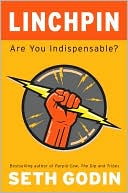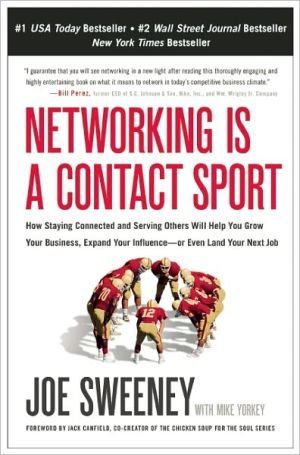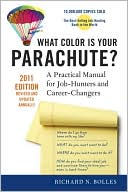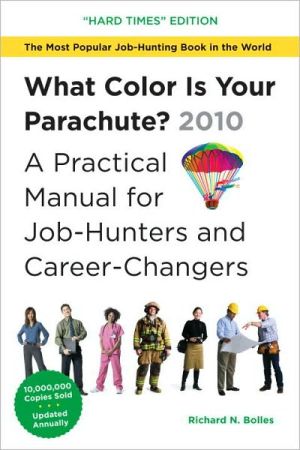How to Succeed in Academics
This is a how-to book for the academic life based on more than 50 years combined personal experience and 8 years of formal group mentoring as part of a workshop on these topics. The unwritten rules of university life are shared through fictional vignettes that are all too real. Secrets to successfully achieving short-term and long-term goals are provided in the progress timelines and suggested milestones. Beginning with selecting a training program and choosing a job, this book takes the...
Search in google:
This is a how-to for the academic life based on more than 50 years of combined personal experience and 8 years of formal group mentoring as part of a workshop on these topics. The unwritten rules of university life are shared through fictional vignettes that are all too real. Secrets of successfully achieving short-term and long-term goals are found in the timelines that suggest milestones by which students may gauge their progress. Beginning with selecting a training program and choosing a job, this book takes the student, fellow, or faculty member through the maze of academic secrecy to a new level of understanding and empowerment. The reader gains insight into the mysteries of preparation, submission, and revision of grant proposals and manuscripts, as well as the presentation of abstracts, posters, and talks. Readers learn how to market themselves and their research throughout training to promotion and tenure. If students are unable to identify mentors, this book will provide helpful ideas.Because the basis of this book originated in the authors' How to Succeed in Academics Workshop, it can also be used to initiate discussions in similar programs. The material will empower the reader to accept the challenge of academic life, share ideas with others, and watch them grow and develop. Success is a process, and this book is a guide through this process in academics. Many of the lessons may be applied to other aspects of life as well. Professor and Chair, Department of Pediatrics, University of Hawaii - Paul Rudoy, M.D. How to Succeed in Academics is a wonderful book - it reads well, is intellectually stimulating, and it increases our capabilities to be successful in this difficult field. It should become a part of all fellowships curriculums and should certainly be available in every academic department.
Preface.Introductory Overview: Establishing Personal Goals and Tracking Your Career.Selecting a Training Environment: Choosing a Training Program, Training Institution, and Mentor.Selecting a Position in Academia: Choosing a Department, Institution, and Mentor.Selecting Grant Opportunities: Understanding the Organization of the NIH, Other Governmental Entities, and Private Foundations.Writing a Grant: Selecting the Specific Aims, Preparing the Budget, and Developing the Research Proposal.Grant Review: How Review Groups Work, Responding to the Reviewers' Feedback, and Preparing the Revised Application.Preparation of Abstracts for Scientific Meetings.Presentations at Scientific Meetings: Preparation of Effective Slides and Posters.The 10-Minute Talk.The 1-Hour Talk, Including the Job Application Seminar.Selecting a Journal: Instructions for Authors, Recommending Reviewers, and Submitting the Manuscript.How to Write Research Papers.How to Write Review Articles and Chapters.Manuscript Review.Ethical Behavior.Leadership.Preparing a Curriculum Vitae.Summary: Gauging Success.Index.
\ From the Publisher"... a concise and informatively written overview of building an academic career. The advice is practical and will, undoubtedly, be of great help to young students, residents and fellows embarking on such a career. While such a guide does not obviate the necessity for personal mentoring of young people, this handbook will remain useful through many phases of an early career in academic medicine."\ --KURT HIRSCHHORN, M.D., Professor of Pediatrics, Mount Sinai School of Medicine\ "How to Succeed in Academics is an easy-to-read, practical and very useful guide to almost all aspects of the early stages of academic life. A particularly appealing feature is the set of concise and well thought out paragraph headings. These allow one to get the gist of a whole chapter very quickly, and to zero in on sections of particular interest. The chapter on grant writing was particularly informative, containing many suggestions useful to myself (not an academic neophyte). Young academics will gain a lot of savvy quickly from this guide."\ --EATON LATTMAN, Ph.D., Department of Biophysics, Johns Hopkins University\ "...a splendid blueprint for some one on the ground who is about to begin the climb on the first rung of the academic ladder. It takes the reader through the necessary steps, explaining what is important, where the pitfalls may lie, and how to be prepared for each step."\ --MICHAEL KATZ, M.D., Vice President for Research, March of Dimes\ "How to Succeed in Academics is a wonderful book - it reads well, is intellectually stimulating, and it increases our capabilities to be successful in this difficult field. It should become a part of all fellowships curriculums and should certainly be available in every academic department."\ --PAUL RUDOY, M.D., Professor and Chair, Department of Pediatrics, University of Hawaii\ "The authors teach by example, using vignettes on almost every page to describe real-life situations, ranging from the interview trip to dealing with unfair colleagues. One never tires of these stories of people and situations; each one presents fresh insights on how to handle things that inevitably arise during the course of a career."\ --DAVID SADAVA, Ph.D., Pritzker Foundation, Professor of Biology, Claremont Colleges\ "I found the material presented to be easy to read, succinct and complete. It presents the trainee with all of the information necessary to help them succeed in an academic career. The publication is extremely comprehensive and effectively covers all of the important issues that a trainee or young faculty member may confront."\ --RALPH D. FEIGIN, M.D., President and CEO, Baylor College of Medicine\ "I found the McCabes', "How to Succeed in Academics" to be a most helpful book. They have captured in a tightly written volume a wealth of academic experience, wisdom and common sense. More senior readers will readily identify with the case examples provided of those things we learned the hard way but are clearly examined here so that the uninitiated reader can avoid those pitfalls. I also found this a book full of academic honesty. The academic life is one of great competition and independence, and that is clearly described here, as well as the steps and process required for success. Overall, I highly recommend this book, especially to graduate students and postdocs."\ --PHILLIP A. WOOD, D.V.M.,Ph.D., Chair, Department of Comparative Medicine, University of Alabama, Birmingham\ "This book, a distillate of years of mentorship, provides a helpful roadmap not only for those embarking on an academic career or in their early critical junior faculty years but a useful source of information for their mentors. It is an invaluable, unmatched, and demystifying guide, comprehensive yet concisely written, filled with wisdom, insight, and practical advice."\ --MELVIN M. GRUMBACH, M.D., Professor of Pediatrics, University of California, San Francisco\ \ \ \ \ Kurt Hirschhorn, M.D.... a concise and informatively written overview of building an academic career. The advice is practical and will, undoubtedly, be of great help to young students, residents and fellows embarking on such a career. While such a guide does not obviate the necessity for personal mentoring of young people, this handbook will remain useful through many phases of an early career in academic medicine.\ — Professor of Pediatrics, Mount Sinai School of Medicine\ \ \ Eaton Lattman, Ph.D.How to Succeed in Academics is an easy-to-read, practical and very useful guide to almost all aspects of the early stages of academic life. A particularly appealing feature is the set of concise and well thought out paragraph headings. These allow one to get the gist of a whole chapter very quickly, and to zero in on sections of particular interest. The chapter on grant writing was particularly informative, containing many suggestions useful to myself (not an academic neophyte). Young academics will gain a lot of savvy quickly from this guide.\ — Department of Biophysics, Johns Hopkins University\ \ \ \ \ Michael Katz, M.D....a splendid blueprint for some one on the ground who is about to begin the climb on the first rung of the academic ladder. It takes the reader through the necessary steps, explaining what is important, where the pitfalls may lie, and how to be prepared for each step.\ — Vice President for Research, March of Dimes\ \ \ \ \ Paul Rudoy, M.D.How to Succeed in Academics is a wonderful book - it reads well, is intellectually stimulating, and it increases our capabilities to be successful in this difficult field. It should become a part of all fellowships curriculums and should certainly be available in every academic department.\ — Professor and Chair, Department of Pediatrics, University of Hawaii\ \ \ \ \ David Sadava, Ph.D.The authors teach by example, using vignettes on almost every page to describe real-life situations, ranging from the interview trip to dealing with unfair colleagues. One never tires of these stories of people and situations; each one presents fresh insights on how to handle things that inevitably arise during the course of a career.\ — Pritzker Foundation, Professor of Biology, Claremont Colleges\ \ \ \ \ Ralph D. Feigin, M.D.I found the material presented to be easy to read, succinct and complete. It presents the trainee with all of the information necessary to help them succeed in an academic career. The publication is extremely comprehensive and effectively covers all of the important issues that a trainee or young faculty member may confront.\ — President and CEO, Baylor College of Medicine\ \








